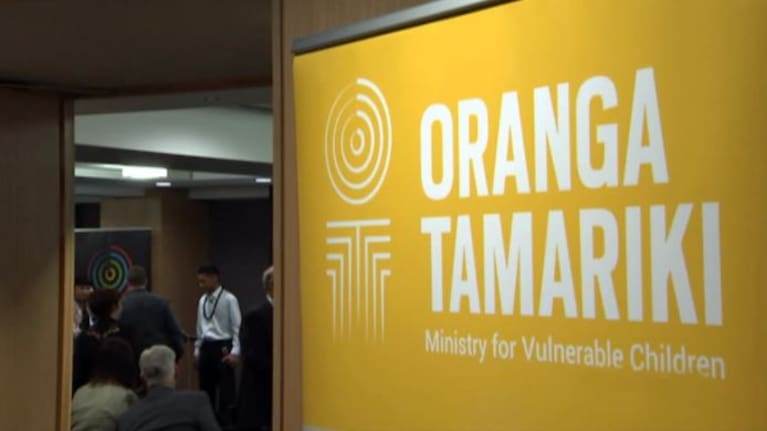In defending the repeal of section 7AA of the Oranga Tamariki Act, the Children's Minister says the public "will see the empirical evidence" backing the change "when people come forward" to speak during submissions.
Karen Chhour has defended the repeal, part of National and ACT's coalition agreement, against accusations it will setback the reform of Oranga Tamariki and state care.
Speaking to Q+A today, the Children's Minister was pressed about the empirical evidence backing the change to remove section 7AA. Repeatedly questioned about the evidential backing, Chhour pointed to cases reported in the media and "very public court cases".
"I've travelled around the country — and also before becoming an MP, I spoke about some of those circumstances — I'm seeing young people actually being sent back to their abusers for visitation, because connection was seen as so important".
When pressed again specifically for empirical evidence, she responded, saying "I'm not exactly sure what you're asking for there".

Chhour added: "We've also got all those who tell me they've been too scared to speak up. We've got social workers, who have said the decisions being made around them were not the right decisions, but they don't want to speak up.
"That's why I think it's really important that we have this consultation through Parliament, which allows these people to have a voice.
"And then we will see the empirical evidence when people come forward and actually feel they have been empowered to have a voice, to be able to say what they're seeing."
The controversial legislation, section 7AA of the Oranga Tamariki Act, was introduced to address the over-representation of Māori children in state care.
As of last year, more than two-thirds of the children in state care are Māori.
The new Children's Minister insists it's at odds with what Oranga Tamariki's trying to achieve, but advocates are calling the move cruel. (Source: 1News)
It compels Oranga Tamariki to give effect to the Treaty of Waitangi, reduce disparities experienced by Māori children, create partnerships with iwi, and prioritise a child's whakapapa when deciding who should care for them. The legislation was created after recommendations from multiple inquiries into the agency.
Chhour has argued it has created a "divisive system" for caregivers.
“I consider that section 7AA allows the treatment of children and young people as an identity group first, and a person second, it creates a divisive system that has had a negative impact on caregivers," she said
"This repeal will make sure that Oranga Tamariki is entirely child-centric and is making decisions that ensure a child’s well-being and best interest.
"Over successive years, Oranga Tamariki has failed our most vulnerable children, and in part that has been because of section 7AA."

Advice provided to the Children's Minister earlier this year by Oranga Tamariki officials suggested "there is no empirical evidence to support the notion that section 7AA has driven practice decisions that have led to changing care arrangements."
The regulatory impact statement continued: "We have heard anecdotal concerns from a small number of caregivers that care decisions are more strongly influenced by cultural factors, than by the immediate safety of children.
"There is, however, no evidence to suggest that these concerns are related to the duties outlined in section 7AA."
Advisors suggested on problems raised publically: "Departmental evidence demonstrates that the problem more likely stems from flaws in the practice of individual staff."
More support needed for children after boot camps
In her interview, Chhour also addressed the Government's plans to introduce military boot camps for serious youth offenders. She told Q+A that the new system would need to better support young people as they return to the community.
National has proposed year-long 'military academies' for some young offenders. (Source: 1News)
"What we haven't done well in the past is actually instead of sending them back to the same environment that they came from and just saying, 'You're on your way. We've done our bit,' and step in and wrap around them once they leave the programme, we haven't done that well. And so that's where we're going to be focusing a lot of our resources."
The minister is expected to release more details about the academies and plans to address youth offending in an announcement later today.
Q+A with Jack Tame is made with the support of New Zealand On Air




















SHARE ME